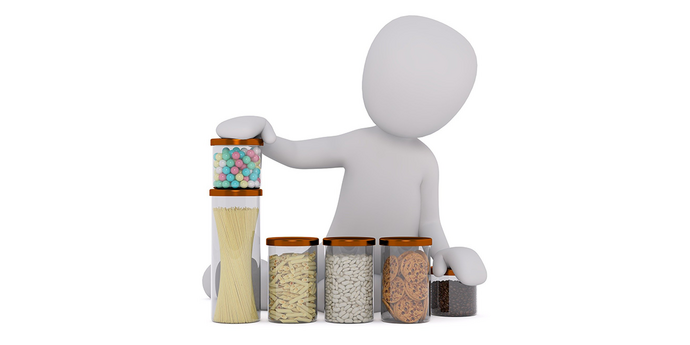Carbs vs sugar

Students are able to recognize the differences between high molecular and low molecular carbohydrates or refined sugars.
| Fächer | CLIL, Ernährung und Lebensmitteltechnologie |
| Erstellt von | Mag. Birgit Hermann, HBLA Pitzelstätten |
| Dauer | 2 UE |
| Schulstufe | 10. Schulstufe |
| Lernziele | Students should improve their English vocabulary on the topic of nutrition and food technology and should understand the differences between high-molecular and low-molecular carbohydrates. Students understand the benefits of high-molecular carbohydrates in terms of their effects on the body as opposed to low-molecular ones. |
| Zusatzinformationen | Lernpaket zum Ausdrucken: Student's version Teacher's version |
Activity 1
Read the text on the following homepage and answer the questions below.
Carbs Vs Sugar: What’s The Difference And Why It Matters (atlasbiomed.com)
- What diets advise against carbohydrate consumption?
- What’s the main function of carbohydrates in the body?
- What chemical elements are carbohydrates made of?
- What’s determined by the chain length of carbohydrates?
- Which carbohydrates are included in monosaccharides?
- Where do disaccharides such as sucrose occur naturally?
- From which raw materials are refined sugars obtained?
- What are the risks of too much refined sugar consumption?
- What are the differences that make polysaccharides digestible or indigestible?
- What’s the name of indigestible polysaccharides?
- Why are polysaccharides healthier than monosaccharides and disaccharides?
- What counts as macronutrients besides carbohydrates?
- How do refined carbohydrates affect blood sugar levels?
- Which foods are rich in fiber?
- How do complex carbohydrates affect our gut microbiome?
- How much fiber is recommended per day?
- Which organ consumes the most glucose?
- Which sugar should be avoided or which foods?
- What’s the role of insulin?
- How does the body deal with too much sugar?
- How does a constantly increased blood sugar affect the insulin balance?
- What diseases are linked to refined sugar?
Activity 2
WH-Questions:
Go back to the text and write down 3 or 4 WH-questions that are not mentioned above. Provide the correct answer to your questions.
| 1. |
| 2. |
| 3. |
| 4. |
Activity 3
Correct false statements:
| 1. |
| 2. |
| 3. |